
Designer Richard Pay explains the unique challenges of designing football graphics – particularly this year’s – as the new ball is unveiled today on the plinth at Wembley.
from It's Nice That https://ift.tt/31iaEI3

Designer Richard Pay explains the unique challenges of designing football graphics – particularly this year’s – as the new ball is unveiled today on the plinth at Wembley.
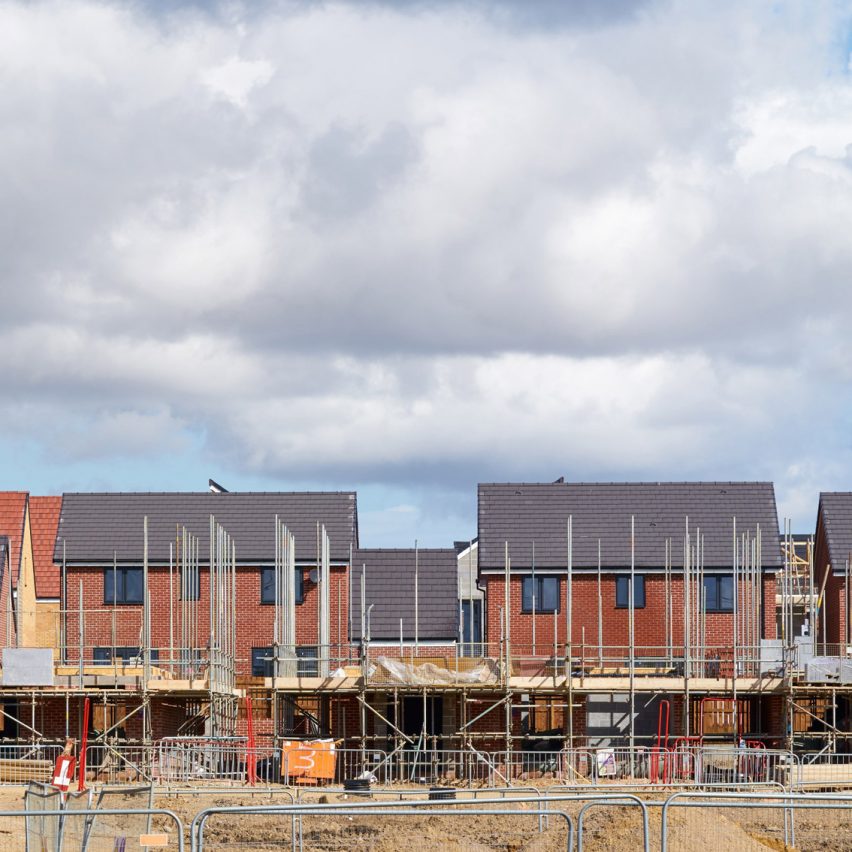
The UK government's plans to deregulate the planning permission system in England will lead to poor quality housing warns the Royal Institute of British Architects.
Under new regulations announced by UK housing secretary Robert Jenrick homes, hospitals, schools, shops and offices on land designated for growth will "automatically" be granted planning permission.
"Deregulation is not the way to bring about new homes"
However, the move to deregulate the planning system was not welcomed by the Royal Institute of British Architects (RIBA).
"The government has missed a huge opportunity to make changes to the planning system for the better, and we call for urgent reconsideration," said RIBA president Alan Jones.
"Deregulation is not the way to bring about new homes."
Described by Jenrick in the Sunday Telegraph as a "once in a generation reform", under the new regulations land in the UK would be classified as "for growth, for renewal or for protection".
In growth areas planning permission would be granted "automatically", while "permission in principle" will be given in renewal areas.
"We are introducing a simpler, faster, people-focused system to deliver the homes and places we need," said Jenrick.
"England's housing market has failed to meet public demand"
RIBA believes that the proposed new planning system will lead to less high-quality housing being built in England.
"For too long, England's housing market has failed to meet public demand while generating enormous returns for shareholders and executives of the large housebuilders," added Jones.
"We urgently need a broad mix of affordable, age-friendly and sustainable housing – but it looks as though this so-called 'planning revolution' will deliver the opposite."
Architects were also concerned that the changes to planning regulations would not lead to more affordable homes.
"This is just absolute boll*cks. Planning regulations are absolutely not the reason for the housing crisis," architect Charles Holland wrote on Twitter.
"Deregulation of planning will not result in more affordable houses," he continued. "Nor is it intended to. It is just a way to allow volume housebuilders to build more shite and make more money."
Jenrick's announcement followed plan announced by the government to extend permitted development rights, which RIBA warned would lead to tiny "sub-standard homes".
"Only two weeks ago the government saw fit to extend Permitted Development regulations, contrary to its own experts and research, which have made clear the damaging consequences," added Jones.
The post RIBA calls for "urgent reconsideration" of proposals to deregulate planning appeared first on Dezeen.
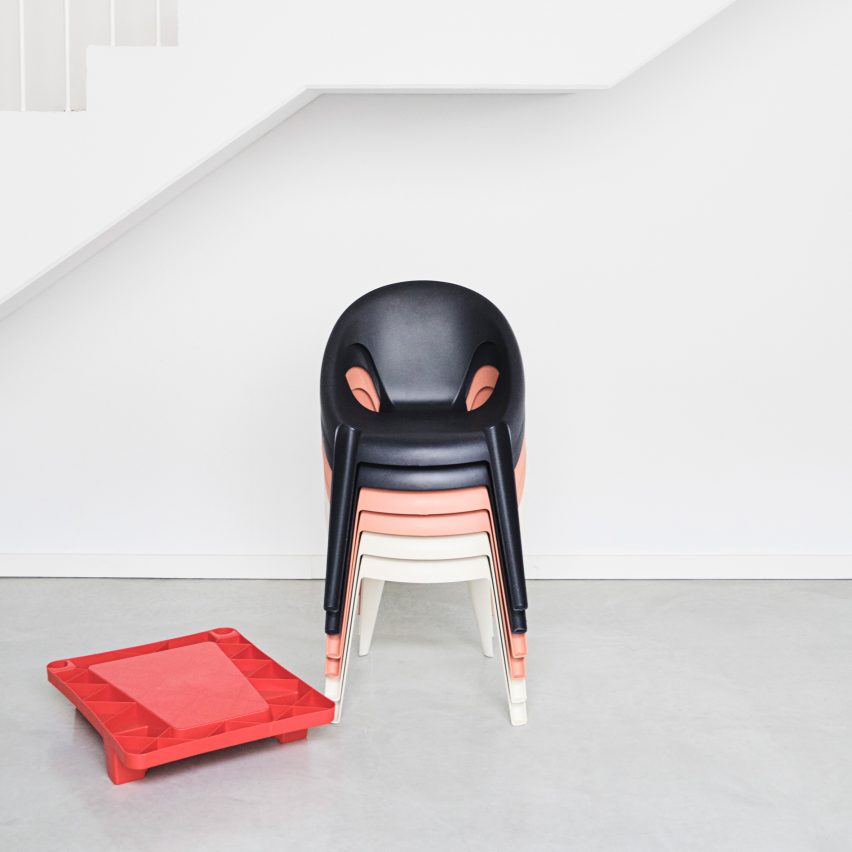
Konstantin Grcic discusses the painstaking design process that went into creating the Bell Chair, his latest product for Magis, in a talk recorded by Dezeen for the brand to mark the chair's launch today.
Grcic spoke to Dezeen's founder and editor-in-chief Marcus Fairs in a talk recorded using video-conferencing application Zoom.
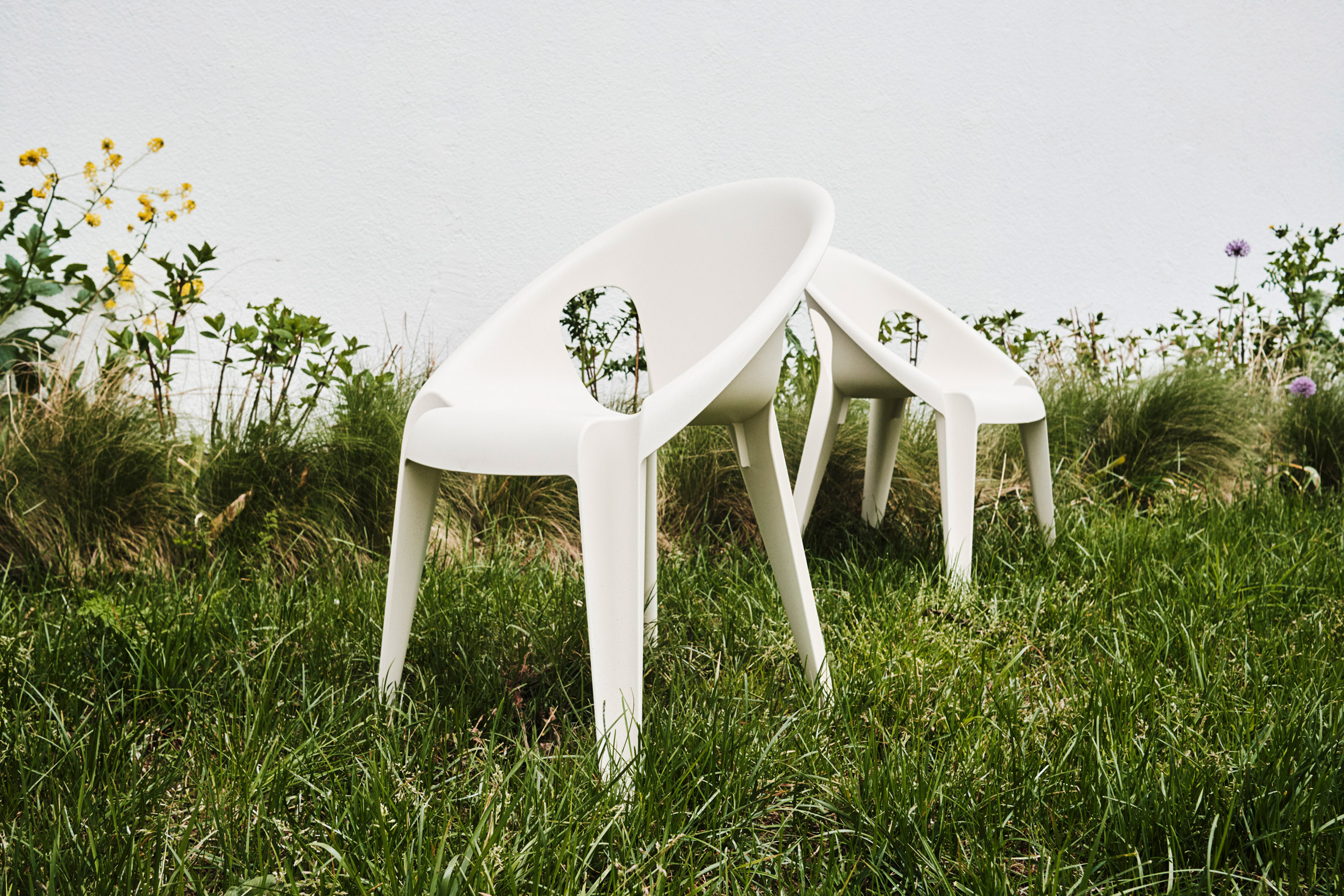
In the video, Grcic discussed the design of the Bell Chair, a stackable chair formed of one piece of injection-moulded recycled polypropylene.
The chair, which Grcic describes in the video as "an egg shell with four c-shaped legs," is a lightweight 2.7 kilograms.

According to Grcic, it was designed within a very strict set of parameters in order to ensure that the final product would be as cost-effective, energy efficient and sparing in its use of materials.
In order to meet these guidelines, Grcic and Magis collaborated to design a recyclable chair that comes in three colours, is made of industrial waste produced in the manufacturing of other injection-moulded plastic chairs, and takes less than a minute to be produced.
During the talk, Grcic explained how creating a simple product can lead to a paradoxically complicated and intensive design process.
"It was really a process of simple ideas and sticking to those very simple principles, and then step by step, very carefully, very thoroughly optimising it," he said.
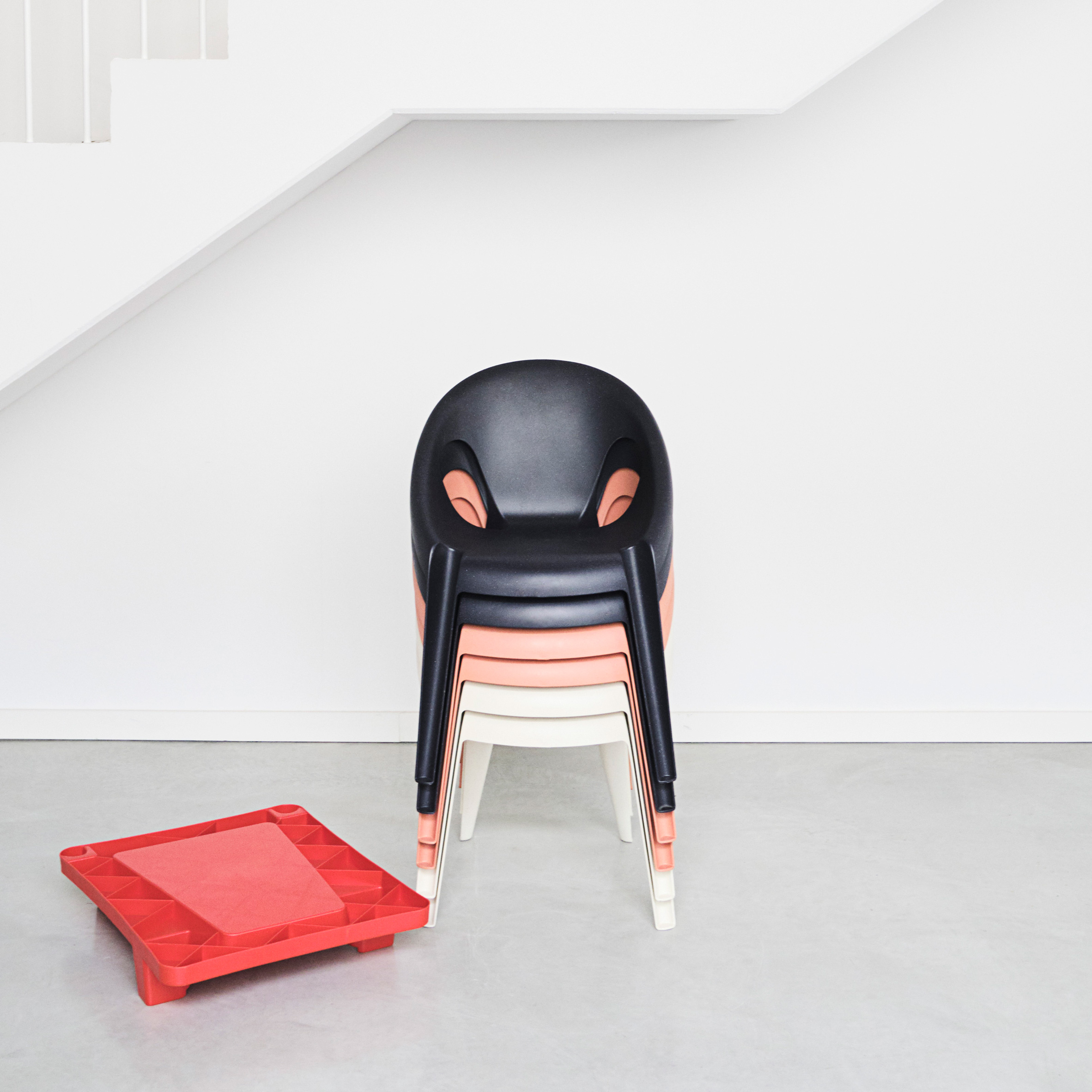
Distinguishing the chair from previous injection-moulded plastic pieces that are designed to either make an aesthetic statement or be as cheap as possible, Grcic describes the Bell Chair as "a very rational, intelligent project" developed in close collaboration with engineers.
Grcic, who set up his studio in Munich in 1991 after studying design at the Royal College of Art in London, spoke to Fairs about his history with Magis.
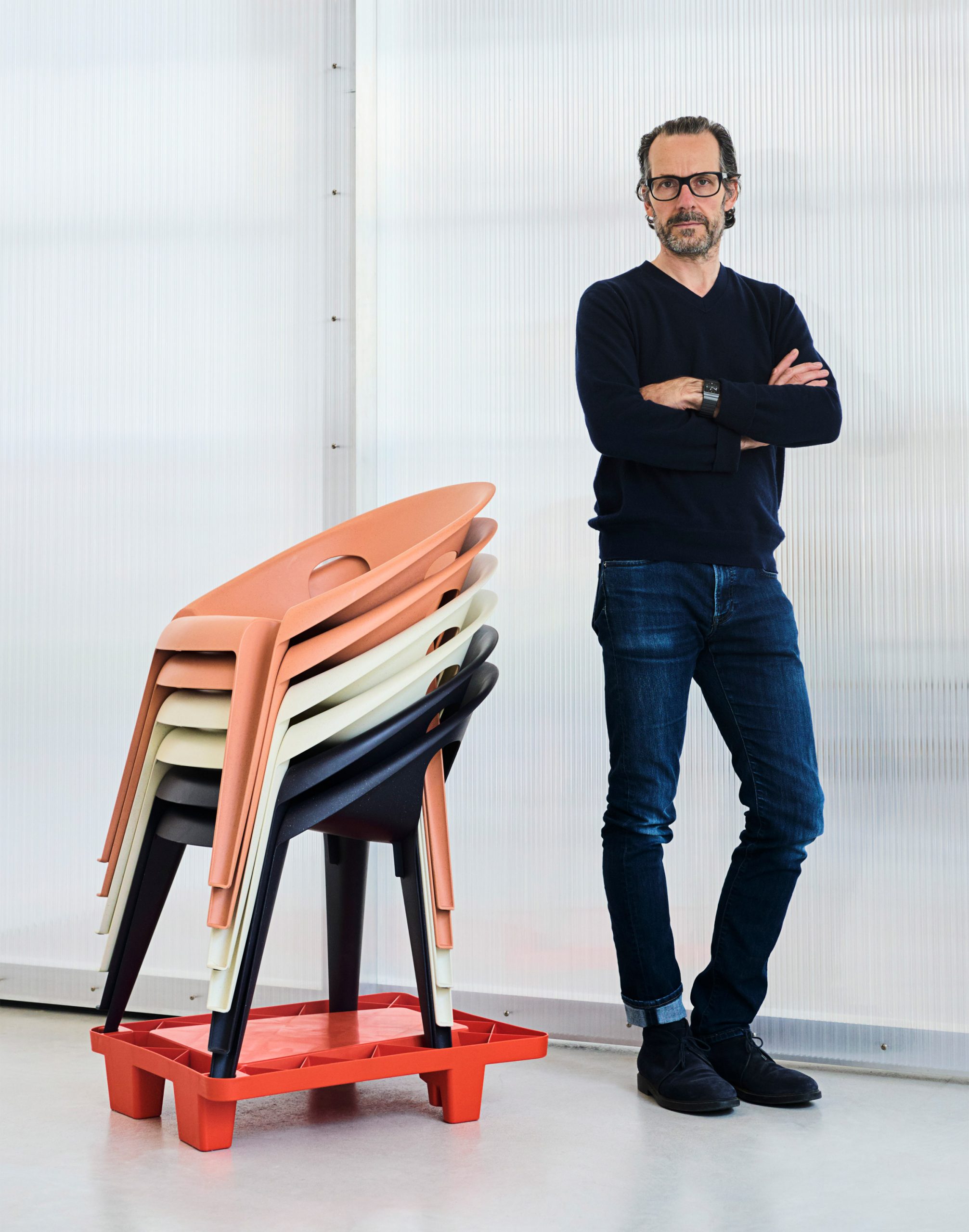
The designer's long-running relationship with the brand began with Chair One, a die cast aluminium chair first produced in 2003.
Grcic went on to create numerous other products for Magis, including a cast iron sofa inspired by machinery parts and a chair with a backrest like a pool noodle.
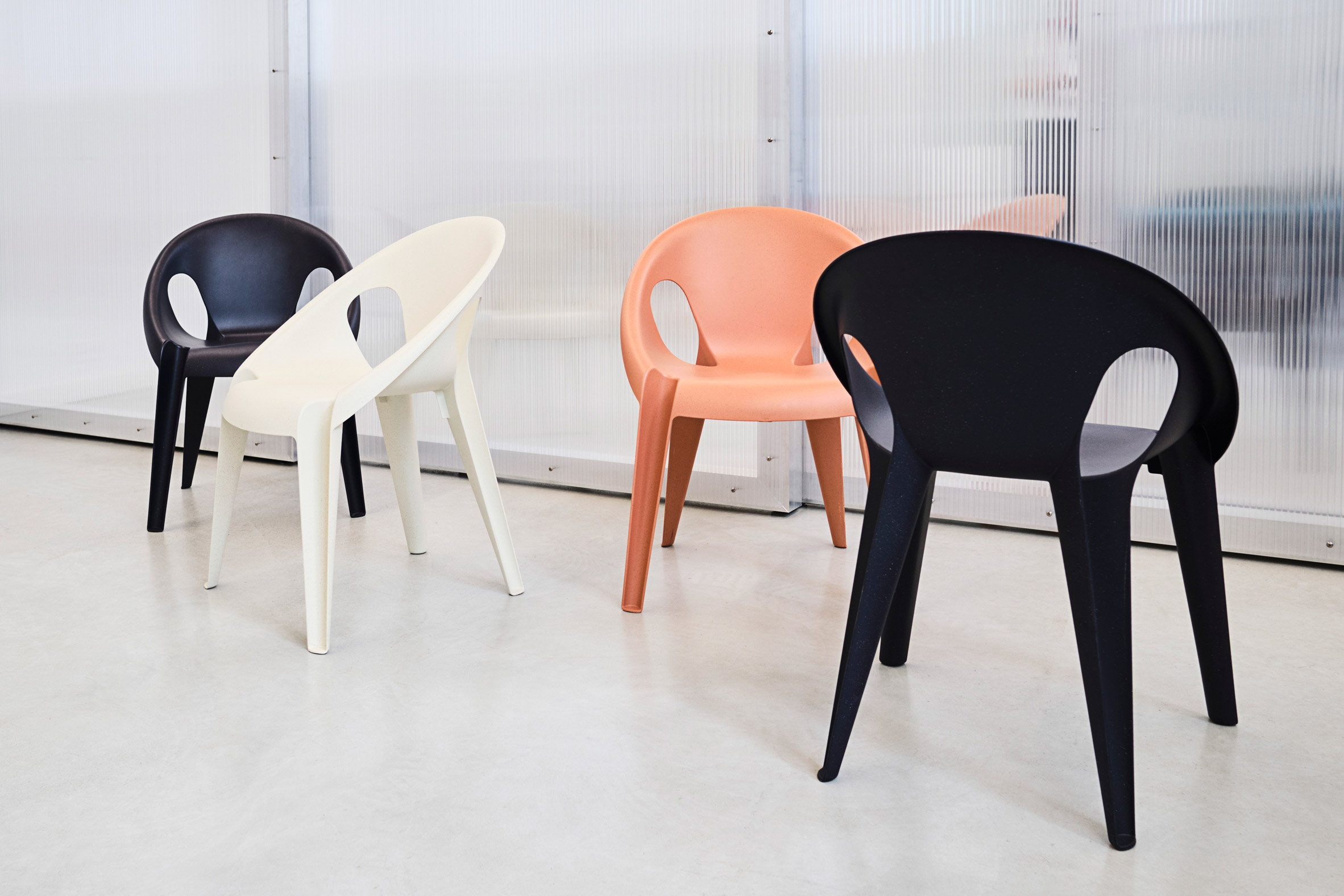
Magis was founded in 1976 by Eugenio Perazza. Amongst the furniture producer's other products is a rotation-moulded chair that resembles a spinning top by Thomas Heatherwick, a wavy plastic bench by Ron Arad and the often-copied Bomba stool by Stefano Giovannoni.
This video was produced by Dezeen for Magis. All imagery is courtesy of Magis.
The post Konstantin Grcic speaks to Dezeen about his "intelligent" Bell Chair for Magis appeared first on Dezeen.

Arnhem in the Netherlands has made a 10-year plan to re-landscape the city to cope with extreme flooding and heatwaves caused by climate change.
Flooding, heatwaves and droughts are already affecting the city, prompting the council to set a goal of reducing the amount of asphalt – a dark material used for roads and sidewalks that absorbs heat and increases water runoff – by 10 per cent for 2030.
Targets set for increasing green space
Selected roads will be replaced by grass, and trees will be planted to provide shade for other routes, cooling parts of the city.
Switching asphalt for greenery will also help with flooding, and Arnhem aims for 90 per cent of all rainfall to be diverted from its sewer system.
Residents and entrepreneurs with an idea on how to make the city more resilient against heatwaves, flooding and droughts can apply for a subsidy through an initiative called Initiatives Climate Adaptation. This scheme has €450,000 (£402,000) to give over the next three years.
Arnhem suffers floods and heatwaves
The city, which sits 13 metres above sea level, has experienced serious flooding in recent years, while droughts have dried up its parks and gardens.
"Many of us will still be the ones to remember the downpour of 28 July, 2014. Then it rained so much that large parts of Arnhem literally in a short time were underwater," said a report on the city's climate adaption strategy.
"The rubber boats passing through the streets are still clear in our minds."
Temperatures reached almost 40 degrees Celsius in the summer of 2019, putting the elderly and vulnerable at risk, and 2020 was Arnhem's third dry spring in a row.
City vows to adapt for extreme conditions
In 2019 Arnhem city council ran "downpour simulations" on a test street paved with different materials, where residents could watch how they coped in heavy rain and select the paving they wanted for their streets.
"Arnhem is at the forefront when it comes to climate adaptation," said city alderman Cathelijne Bouwkamp.
The city council will partner with the water board, local corporations and schools to focus on the climate adaption strategy.
"By joining forces, we ensure that Arnhem is as well as possible prepared in the future against increasingly extreme weather," added Bouwkamp.
Cities around the world are rushing to adapt to climate change and the serious weather it causes. In San Francisco, a historic building has been raised three metres off the ground to save it from rising sea levels, and in New Orleans, nuns have donated their convent to be turned into a wetland for flood prevention.
Main image is a stock photo from Pixabay.
The post Dutch city swaps asphalt for trees to adapt to climate change appeared first on Dezeen.

In the week that marks the 75th anniversary of the Hiroshima and Nagasaki atomic bombings, the world-renowned artists explore themes of destruction in different ways.